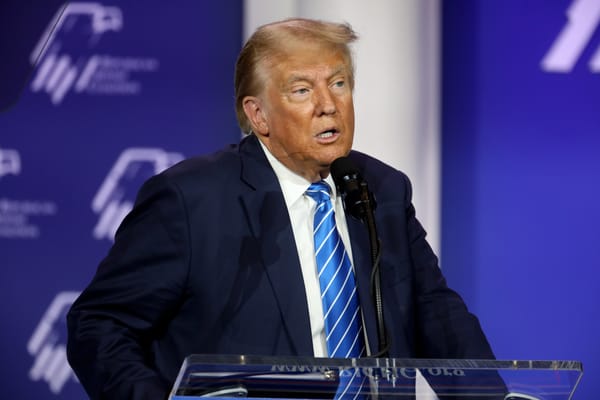Does an Autogolpe Justify International Sanctions?

Economic sanction regimes, of which we can see applied to nations the world over, have been applied to countries for decades—in some instances, even centuries—for various reasons. Some, like those rationalized to embargo Magara, Cuba, Iran, North Korea, and previously Vietnam, were utilized in order to attempt pressure campaigns upon disagreeable nations who—in four out of the five instances—were dealing initially with internal civil conflicts before and during American intervention. Others, such as those which are currently applied to Russia, on the other hand, aim to pressure that target nation from ceasing their incorrigible and dastardly incursions into a sovereign neighbor.
Sanctions in general are ineffective at achieving their stated goals and hurt the most vulnerable members of the targeted nation rather than their political leadership. What the current sanctions against Russia have shown is that a truly unified, multilateral process can be effective at achieving a narrow set of goals and at setting a resounding international precedent; something any conceivable unilateral measure could not hope to accomplish.
While I have long been a staunch opponent of the seemingly-unlimited use of sanctions against disagreeable nations in lieu of the multilateral entreaties of which can create actual progress and volition with those nations of whom we do not see eye to eye with, sanctions against a nation like Russia—acting with overt militarized aggression against a neighbor—are more defensible.
Defensible though the case may be, their use against Russia in this instance has provided positive marketing for the use of sanctions with unusually broad public exposure. Rather than questioning the limits of this approach, many seek out cases in which to apply them. In Brazil, the government and military of Brazilian President Jair Bolsonaro have made hints and threats that they will not honor the results of an election in which he loses to former President and political prisoner, Lula, in the upcoming runoff election. Some have begun to ask: in the event of a Bolsonaro “autogolpe” in Brazil, should the US impose sanctions, and if so, in what form?
The legitimacy of a multilateral response
While the attempted overthrow of a neighboring nation’s government—such as the Russia-Ukraine conflict—certainly meets many of the pre-WWI standards for imposing some type of sanction, blockade, or embargo against that aggressor nation, might the successful overthrow of one’s own nation qualify that leader, his retinue and those abiding national institutions, for that type of international treatment as well?
While the United States has made clear to the Bolsonaro administration that interfering in this most recent election process—in which the incumbent performed better than polls suggested he would—should not occur, more should have been done across the months preceding this presidential election. Multilateral pressure to persuade the Bolsonaro administration and the Brazilian military to honor the results of the election would have greater effect than unilateral pressure, just as is being witnessed concerning Russia.
An argument can therefore be made that an autogolpe can and really must be considered an internationally sanctionable offense if and only if a grand, multilateral coalition of nations—led chiefly by the Organization of American States, or OAS—fails to impress upon Bolsonaro and his regime the danger of his boast and intimated promises.
With that noted, however, we must not forget that the consequences of a sanction yolk upon the neck of Brazil would be devastating and savage, and while the pressure upon Bolsonaro would be immense from both within and without his own nation, that pressure would also effectively punish the millions of Brazilians across that vast, diverse and beautiful nation for being subjugated by their malevolent captor.
The second and perhaps most important consideration is that even if we conclude that a sanction campaign is likely justifiable, that does not mean that it is advisable. While it is simple to observe the Russian-Ukrainian conflict as a bloodletting exercise by one nation against another, appraising a bit of history can be useful in understanding the rather recent international precedents that have been set and how they’re relevant in judging this particular question for Brazil and for other elections and nations to come.
Autogolpes
The word autogolpe is, itself, a clue concerning the nature of the concept it represents. Spanish in the word’s immediate origins—and certainly, Spanish-speaking Latin American nations have much experience concerning the illegal and undemocratic seizing of power. Each part of the word—“auto” and “golpe”—derives further from Latin—“auto” and “colaphus”—and, of course, Greek—“αὐτο” and “κόλαφος.” In terms of and from the perspective of the state, therefore, an autogolpe can be literally understood to mean a self-blow, or an attack coming from within. Of course, the leader or group of leaders working to remain in power by illegal means after initially coming to authority legally are not hurting themselves by their machinations, but the people and state of society collectively.
Donald Trump, in the aftermath of the 2020 US Presidential Election, certainly attempted an autogolpe in the United States, but was thankfully rebuffed and thwarted on the 6th of January, 2021. Many political scientists go a step further still, suggesting that the efforts to stage a successful autogolpe in the future continue to be laid out by both civilians and legally elected supporters of the 45th American President across the states of this nation. While the US is certainly the most famous recent attempt around the world, it is far from unique in either the attempt or the failure.
Autogolpes do not have a universally agreed-upon definition across the scholarly world, and so the official counts vary between scholars and institutions. Indeed, while John Chin, a research coordinator at the Institute for Politics and Strategy, states that, between 1946 and 2020 alone, an estimated 148 autogolpes have at least been attempted—110 times in autocracies, and 38 times in democracies, the Center for Systematic Peace has—as of earlier in 2022—noted that 41 successful cases of what they termed, “Subversion by Ruling Executive” existed, and the Cline Center for Advanced Social Research put the number at at least 64 attempted autogolpes since 1900, while the US is the most Democratic out of any of the nations on their lists where an autogolpe attempt was observed or noted.
Inconsistent application
The continued threat of an autogolpe in Brazil—by the President and the nation’s military—is a good reminder that nations across that region—and of course, around the world—have had to fight off similar threats for decades and decades. However, appraising the varied responses that both military coups and autogolpes have been given by the international community is telling; like international villains and human rights violators, not all coups or autogolpes are treated the same by the US and its allies, and the reasoning behind so many widely differing responses is very much in the same vein as well.
When the United States or its allies intellectually back or even physically assist or finance coups or strongmen in nations like Iran, Guatemala, the Dominican Republic several times, Brazil, or Chile—to name several—it is no problem, no matter even if those ascending leaders or governments are bloodthirsty, barbaric entities themselves. The other side of the same coin, of course, is that when a coup is attempted or successfully undertaken that the US or its allies do not approve of, however, there are some definite repercussions that those nations have to endure. There would be no problem with this very natural collective national and international response if either the responses were proactive or productive in the first instance, or the rationale behind the responses was either coherent or consistent.
Neither is the case, however. In the same way as we ask ourselves how we can fathom doing business with Saudi Arabia or Vietnam while sanctioning Iran, Venezuala or Cuba, it must be questioned why certain coups of a bloodthirsty, repressive nature should not only be permitted to occur without making a commotion or stink, but should actually be welcomed while other coups—autogolpic or not—inspire multi-decade, sometimes even multilateral, sanction suffocation campaigns. Again, in this, as regarding the great, internationally wielded sanction cudgel, concepts like “national security interests” and “fiduciary responsibility” win the day.
Both Cuba and Greece across the 20th century are fantastic examples of this and previous points. Whether it be Fulgencio Batista—the leader of a pentarchic junta of officers who led Cuba after the Revolt of the Sergeants in 1933 who would go on to win the Presidency in 1940 whose final reign of power, from 1952 to New Year’s Day 1959, began itself as a coup, coming right before his attempted elected victory in the Presidential Election of 1952—or Georgios Papadopoulos of the Regime of Colonels—that held Greece hostage in various ways from 1967-74—US national economic and security interests have consistently superseded most governmental human rights concerns.
While the US backed unfortunate dictators and regimes across much of the first half of the 20th century in Cuba and so many other nations across that region during this time period, from the 1930s to the 1970s, the nations known collectively as “the West” happily brought Greece into both NATO and included it in the Marshal Plan—despite the severe illiberality and repression of most of the leaders and governments across this period.
As former US President Lyndon Baines Johnson is quoted as having once said to Greek Ambassador Alexander Matsas in the leadup to 21 April 1967:
…Fuck your parliament and your constitution. America is an elephant. Cyprus is a flea. Greece is a flea. If these two fleas continue itching the elephant, they may just get whacked good… We pay a lot of good American dollars to the Greeks, Mr. Ambassador. If your Prime Minister gives me talk about democracy, parliament, and constitution, he, his parliament, and his constitution may not last long…
In the particular circumstances of pre-Castro Cuba and Greece between the 1930s and 1974, we see that, as was touched upon in my previous essay that went into detail regarding the US-Saudi Arabian relationship, sanctions and “tough international diplomacy” are—although not always—often more indicators of the cultural, economic and/or social prejudices of American and American-allied nations or collectives than of the socially or governmentally moral positions of those targeted. While we see that, most of the time, there is at least an ostensibly given reason for why sanctioning a nation will both work and be more humanitarian than seeing endless bodybags being helicoptered out of a Vietnamese jungle, the game is only really given up by sanction stans when one compares those punishment regimes to those ne’er-do-wellers who the US and its allies tend to need for some matter or assorted resources.
South Korea of the 1960s and 70s, however, is perhaps the best example of this aforementioned dichotomy. While North Korea was—at this point—already a decade-plus into US sanctions, South Korea was not being sanctioned at all—nor has it ever been. While the Kim family of North Korea is rightly derided for their autocratic manners, it should certainly be clarified that South Korea was also led by just two individuals from 1948 to 1979—and suffered through further authoritarian regimes until 1988. The difference between North and South Korea is simply as cut and dry as which interests they each align with; Soviet and Chinese aligned? Sanctions. Western aligned? Friendship, along with various degrees of intelligence, financial, and military support.
Not only did the US and its allies do nothing when South Korea’s first modern President, Syngman Rhee, led the nation as an authoritarian for over a decade, but after students finally ousted him during the April 19th Revolution of 1961, they watched and happily cooperated with his successor, the high ranking military officer Park Chung-hee, as he first ruled as part of a junta, before succeeding to the rank of President through election, only to choose to implement martial rule in 1972, of which would be sustained across the final seven years of his life and rule. His era is particularly significant and interesting to me, for how he hit the political leadership triple crown of sorts; he came to power through a military coup, remained by being voted in by the people, and then, deciding through an autogolpe, that he could just rule for however long he liked regardless of election results or the will of the people. His assassination in 1979 was not the end of South Korea’s torment, but it was a warning that those present conditions could not persist too much longer.
Now, while the American and European reactions to Batista-era Cuba, Junta-era Greece, Pinochet’s Chile, as well as to much of modern South Korea, were all abhorrent in their tactlessness, callousness, and shameless cooperation, they demonstrate the real lack of any true belief in the construction of a liberal global society at this time. Liberal or democratically selected societies—in this mindset—are simply not always as compatible with American financial or national security interests as are cooperating despots, authoritarians, and their lackeys.
There have, of course, been brief moments—like the speeches and correspondence written by Henry A Wallace in the 1940s and 50s, with the non-military aspects of the Marshall Plan, the Geneva Convention of 1954, with Kennedy’s international call for a diplomatic resolution vis-a-vis Laos in the early 1960s, as well as the Iran-JCPOA, developed and agreed to during the Obama administration less than a decade ago—where America and its allies appeared to be so close to understanding what had to be done going forward concerning the rest of the world and their fellow human, but alas, like sand, they could not grasp it in their fists as easily as either their guns or swords.
Why intervene
At this point, one might ask why interfering in the internal business of Brazil—or any other nation—in these ways, would be any more justifiable or wise than those interventions in other, well-known cases where “Civil War” -ish type stuff was occurring. The answer is simple: not all intervention is equal; military invervention is a lot different than collective diplomatic intervention with the aims to levy the proper results from a situation. The Geneva Accords of 1954—if properly carried out at the time, would have been a clear and definitive example of the power that these types of arbitration summits can have upon the international community of nations.
Furthermore, not all intervention comes from the same perspective, angle, or self-interest either. When the US sanctions a nation like Cuba, Iran or North Korea, for example, it does so because national political, economic or hegemonic interests are, in their eyes, at risk in some manner. There is no real care or concern for the people of those nations, as the prior relationships with Cuba and Iran can firmly attest to, and the deep animosity that American reactionaries have towards still-fleeing Cubans—those who are incredibly pro-American in the overwhelming majority—further demonstrates this truth.
To be even blunter concerning the differences, in decades past—as has been illustrated—the United States would have had little issue doing active business with an authoritarian or looming authoritarian figure—such as the Shah of Iran, General Pinochet of Chile, the Greek Junta or the Strongmen of South Korea—so long as it meant that whatever liberal or leftist leader or group was domestically powerless in comparison. Cooperation with strongmen in the aforementioned nations of Chile, Cuba, Greece and South Korea are all known to some degree. Yet, other cooperation, like that with the Dominican Republic, Brazil, Iran, Iraq, South Vietnam, Guatemala, Nicaragua, and a bevy of other countries, further illustrates this point better than anything I could say. In previous instances, America has sought to punish nations through sanctions when they obeyed the will of their own people, pushing off the yolks of barbarism for sometimes positive, and sometimes negative alternatives.
In contrast, pressure campaigns upon nations who disregard the wills of their people are seemingly an unwelcomed innovation across much of American history—yet this must absolutely not be the case going forward. It is, in some ways, the natural course from which that proclamation of former Vice President Henry A Wallace on 13, March, 1947 to those foreign policies of the Truman administration, might still flow from, even so many years later.
The world is hungry and insecure, and the peoples of all lands demand change. President Truman cannot prevent change in the world any more than he can prevent the tide from coming in or the sun from setting. But once America stands for opposition to change, we are lost. America will become the most-hated nation in the world. Russia may be poor and unprepared for war, but she knows very well how to reply to Truman’s declaration of economic and financial pressure. All over the world Russia and her ally, poverty, will increase the pressure against us. Who among us is ready to predict that in this struggle, American dollars will outlast the grievances that lead to communism?
America, that nation of which VP Wallace once said must not stand in the way of that eternally consistent international change wrought by the wills of the people of the world, actually stands up for those people when it confronts nations—such as modern Brazil—for threatening to steal the peoples’ future from the people of the nation themselves, instead of sanctioning them and telling them to come to the table when they’ve had enough. Without this determination to fight for the rights of people across the world to determine their own natural courses of governance and existence, while also doing our best to ensure that what are often referred to as basic human rights are given to all peoples through these processes, to borrow, remake, and repurpose an old Thomas Brackett Reed quote, “America, as a ribbon to stick in your coat, is worth no one’s consideration.”
With the Brazilian Presidential Election having just passed, and the run-off scheduled for 30 October, a firmer stance should have already been taken by the US, OAS and the greater world—even as so many other issues permeate the international community at this very moment; there is, however, still plenty of time to do so. If the Brazilian government and military seek to push back on the will of the people during this four-week period between votes, then sanctions—while likely justifiable in the technical sense in this circumstance—will not necessarily cause the issue to cease as fast as would be necessary given the circumstance. The United States, therefore, in coordination with the rest of the world, must continue and even ramp up the pressure campaign now and today to ensure that the Brazilian government understands what the united repercussions of “standing in opposition to change” might look or feel like.
This maneuver, far more than sanctioning a nation before or after such an attempted or successful action, would have and could still show the people of Brazil that the world is fully and truly with them in their struggle against an illiberal authoritarian such as Bolsonaro and his cronies. Showing a unified, global front, remains crucial to inhibiting internationally illegal or inhuman behavior from proliferating across the world. Furthermore, it would counter the groundwork laid by that administration in Brazil with an international collective of nations whom stand in solidarity with the voters of that nation—whatever they should decide to choose at the end of October.
That choice, however, is not Jair Bolsonaro’s to make. It is neither Lula’s to make either. The choice of leader for the present and future of Brazil lies in the hands of the millions of people that make up that nation. Those millions are not the enemies of the world, but are our fellow family members upon this planet; we cannot support their fight for freedom by starving them of finished or raw resources, or by attempting to remove them from the international community of nations due to their leader. That is precisely, to some degree, what the illiberals all wish for. They want to be able to claim to be even more victimized than they almost always posture to be. So, by showing solidarity and unity despite superficial characteristics or traits, the world can disarm much of the isolation and selfish thinking that the authoritarian looks to plant and reap when the time is just right.
No, we must, as a collective of nations of which surely must include as much of the OAS as possible, demonstrate still today our mutual, global resolve to stand with the Brazilian people as they move to elect their next President, as well as local and national politicians and leaders. It must be done with collective unity and purpose, and it must be done in defiance of the current Brazilian President, not by feeding his fascist-politically victimized mentality with sanctions that he can try to spin to his own advantage. While Jair Bolsonaro believes he can hoodwink and diminish the power and people of his own country, he and his followers will have to think twice once its neighboring nations across the Americas, Europe, Asia, Africa, and the rest of the world have pledged to stand by and with Brazilian Democracy in this latest chapter of the polity’s history.
Featured Image is Jair Bolsonaro by Marcelo Camargo




